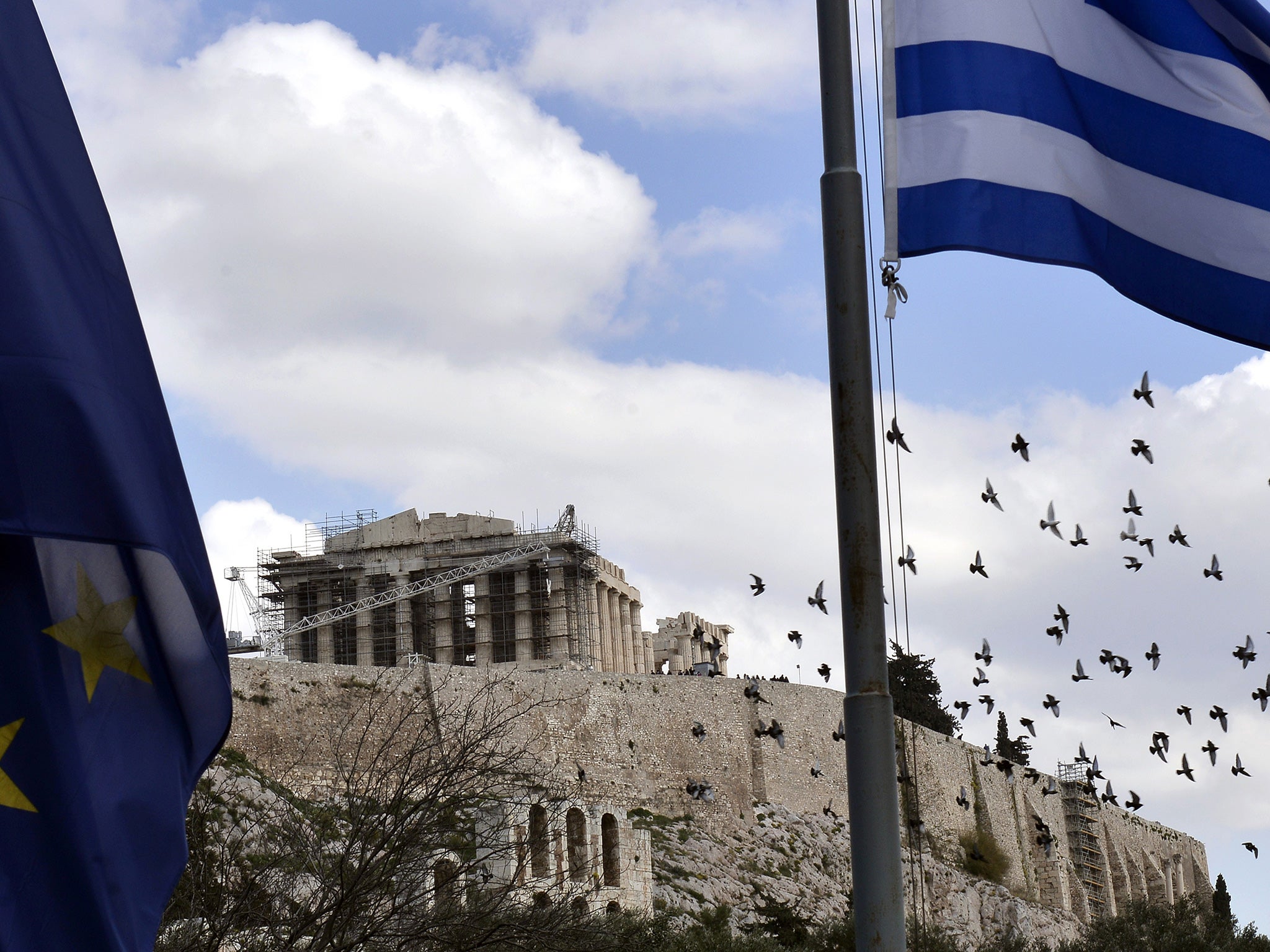Greek bailout: An exile's view: I'm still terrified of a Grexit
Comment

Your support helps us to tell the story
From reproductive rights to climate change to Big Tech, The Independent is on the ground when the story is developing. Whether it's investigating the financials of Elon Musk's pro-Trump PAC or producing our latest documentary, 'The A Word', which shines a light on the American women fighting for reproductive rights, we know how important it is to parse out the facts from the messaging.
At such a critical moment in US history, we need reporters on the ground. Your donation allows us to keep sending journalists to speak to both sides of the story.
The Independent is trusted by Americans across the entire political spectrum. And unlike many other quality news outlets, we choose not to lock Americans out of our reporting and analysis with paywalls. We believe quality journalism should be available to everyone, paid for by those who can afford it.
Your support makes all the difference.Being Greek in the years of the crisis is not only hard: it’s excruciating. Of course, it can’t compare to being Ukrainian or Syrian, or to being from a war-torn country, but it’s still quite bad.
Even for those of us fortunate enough to be living abroad, stress levels have hit the roof since Varoufakis-mania made Grexit suddenly seem imminent once again.
Notwithstanding the latest reports of a possible “deal”, the sinking feeling of Greece making headlines for all the wrong reasons is something you can’t run away from. Since 2011 all the news has talked about is horror scenarios of looming disasters. Eventually, this vision starts to feel like your reality.
I left Greece in 2013 after my world had practically collapsed. I lost my job as a foreign language teacher and had spent the next year and a half in limbo, veering between insanity and apathy until I decided to start again in the UK.
Back home, many of my friends still found themselves unemployed, or had to take up ridiculously low-paid jobs in coffee shops. Those who still maintained a comfortable lifestyle became so scared that they shipped their savings away to the safety of foreign banks. And these were the lucky ones. A great number of people in Greece still live below the poverty line, not knowing when and if they’ll ever be able to make ends meet again.
But the crisis was no accident. We got were we are today after a series of governments mismanaged finances and cultivated a corrupt mentality that favoured clientelism and easy, unfounded success. Public service had become a luxury home for those with the right connections. If you wanted to succeed in the private sector, your father had to dust off his contacts book and start calling old friends for favours. In its way, living in that “prosperous” Greece was not easy either.
Today, being away from the madness of a financially and emotionally rundown country, I ought to feel safe, as a mere spectator to the unfolding of this recurring Greek drama. Instead, I’m terrified. The new government, well-intentioned as it might be, gives me the impression of an inexperienced, narcissistic crew running towards a head-on collision with Europe. Irrespective of possible compromises, it seems to be basing its hopes not on a concrete plan, but rather on the lack of one.
The old Greek shortcoming of idealising a seemingly hollow bravado is in the ascendant, and being used as a manipulation tool to excite the exhausted public’s support for the government. People are following blindly towards an ill-envisaged future – and it’s working because people think they have nothing to lose.
Europe is right to be asking for reforms, yet under the current circumstances such a request seems implausible. The previous government chose to over-tax citizens instead of drastically restructuring the public sector. Now people can’t take any more harsh measures because they’re completely drained.
But if Grexit scenarios do finally become reality, Greeks – both inside and outside the country– are in for a nasty surprise. A return to the drachma will be madness, an EU exit calamity. This is what frightens me. The social dimensions of such an aftermath will be even worse than the financial ones. Since the beginning of the crisis, distress has already led people to adopt a regressive, civil-war-like attitude. This will reach extremes when the realisation of what going burst actually means kicks in.
Observing from a safe distance, I can judge the Greek bailout saga with relative sobriety and I admit I am still optimistic that the new government will make a quick transition from innocence to experience and work things out with Europe.
But if the worst comes to the worst, I can always take comfort from being safely tucked away in my London flat. For now.
Join our commenting forum
Join thought-provoking conversations, follow other Independent readers and see their replies
Comments